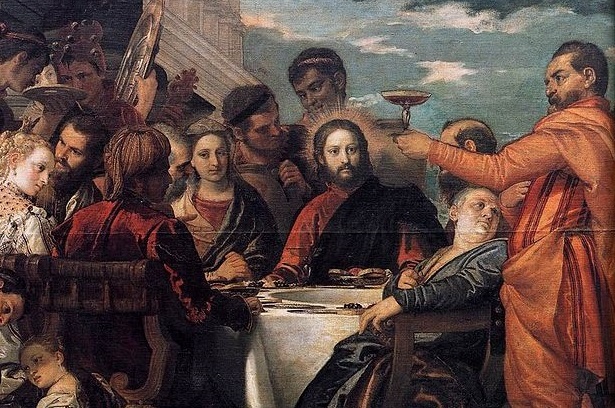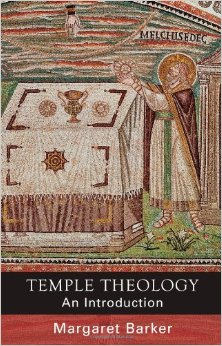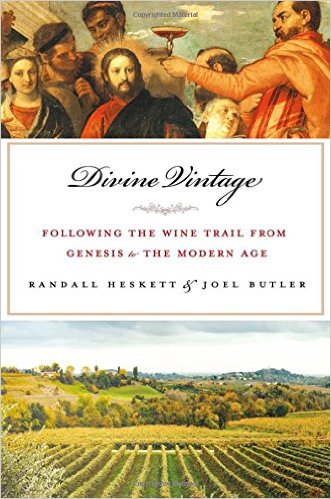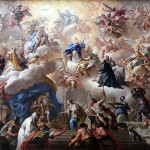
Karl Barth is said to have recommended taking “your Bible and newspaper, and reading both.” He added, “But interpret newspapers from your Bible.” Last Sunday’s reading has me wondering whether the same could be said about your drinks.
Our Irish priest launched into his Wedding at Cana sermon with, “I have no problem believing the Miracle at Cana.” This sounded odd enough for an audience raised upon a demythologized worldview. Then came the punchline in the next sentence, “What’s implausible is how there weren’t people following Jesus with jugs of water for the rest of John’s Gospel.”
Later my friend responded to this sermon with a biblical-critical flourish, “it could’ve happened but been one of the many things ‘which are not written in this book.'” Another one added, “Sounds like it was entirely possible, ‘The Son of Man came eating and drinking, and they say, ‘Behold, a gluttonous man and a drunkard, a friend of tax collectors and sinners!’ Yet wisdom is vindicated by her deeds.'”
The average person could be excused for thinking that Ecclesiastes’ cynical “Eat, drink, and be merry, for tomorrow we die” is the last word of the Bible on drinking. But Ecclesiastes is an odd duck in a much more uniformly merry biblical canon.

While reading through the Wisdom literature lately, spurred on by my reading of Margaret Barker’s controversial work, I was surprised how frequently the Wisdom Literature recommends drinking. For example, there’s this wonderful flourish in Sirach that combines a robust theology of Creation with boozing responsibly, “What is life to one who is without wine? It has been created to make people happy.” Sirach also advises the poor to drown their sorrows in wine. Goodness knows I follow that excellent advice from time to time because of my frequently precarious financial situation. I won’t track down the relevant passages for you in the hope that it encourages you to dig into the Wisdom literature.
What’s interesting is how difficult it is to track down references to drinking in the Bible on the internet. They seem to have been censored. They actually have. Luther expunged them from the Bible when he threw out several Catholic books from the Old Testament canon. It’s odd Luther did so given how much he was known for boozing it up. Later generations of Reformers did not follow his drinking lead. This is sad.
Revelation also describes heaven as a great party, a wedding banquet, a celebratory dinner. This is a profound theme most viewers missed when watching Stephen Colbert invite Bill Maher back to the Catholic faith. Colbert riffed on the heavenly banquet theme after Maher accused him of pushing his beliefs upon him by comically impersonating Maher saying, “This guy gave me a huge lecture about going to dinner.” That dinner is heaven; heaven is that dinner.
Our Irish priest picked up on the banquet theme in his sermon too. How could he not after he playfully, but for all that seriously, chastised his parishioners for giving him tons of cookies around Christmastime, but no whiskey?
He did this by comparing American and Mexican wedding receptions. According to him the difference is that American receptions tend to be short and cheap affairs, whereas Mexican ones run into the night, and not infrequently for several days. In his judgement Mexican merrymaking mirrors the biblical metaphors of the heavenly banquet and God as groom and the Church as his bride more perfectly. Weddings are not the place for thrift, they are a space for the gift, just as God gives us our existence gratuitously.
It is also true that inebriation, if done right, can be comical. This is something that the padre did not pick up on. It’s also something that Chesterton missed in the otherwise almost Dionysian prose of his Orthodoxy:
There was something that He hid from all men when He went up a mountain to pray. There was something that He covered constantly by abrupt silence or impetuous isolation. There was some one thing that was too great for God to show us when He walked upon our earth; and I have sometimes fancied that it was His mirth.
Granted, on a more generous reading, this statement can be taken to imply that mirth is an attribute of God. It’s just one he chose to mysteriously hide in the New Testament. But did he? Let’s take a look at last Sunday’s reading:
Jesus told [the servants],
“Fill the jars with water.”
So they filled them to the brim.
Then he told them,
“Draw some out now and take it to the headwaiter.”
So they took it.
And when the headwaiter tasted the water that had become wine,
without knowing where it came from
— although the servers who had drawn the water knew —,
the headwaiter called the bridegroom and said to him,
“Everyone serves good wine first,
and then when people have drunk freely, an inferior one;
but you have kept the good wine until now.”
Jesus did this as the beginning of his signs at Cana in Galilee
and so revealed his glory,
and his disciples began to believe in him.

Did you notice the joke Jesus played on the headwaiter with the servants? The servants knew all along, but the headwaiter had no idea. If this is how Jesus “revealed his glory,” and made his disciples “believe in him” then Nietzsche, as is frequently the case, was half right in identifying drinking and Christianity in his Twilight of the Idols:
What the German spirit might be — who has not had his melancholy ideas about that! But this people has deliberately made itself stupid, for nearly a millennium: nowhere have the two great European narcotics, alcohol and Christianity, been abused more dissolutely.
You can perhaps blame his Lutheran upbringing for this uptightness. Although he probably found the idea of a drinking Christ attractive secretly as evidenced by his all-consuming love for the god of wine and revelry, Dionysus. Then again, there’s a charitable reading: What if abuse implies the laudatory nature of the proper use of both Christianity and alcohol?
The Ante-Nicene Fathers liked to argue that the divine Logos stood behind all that is good and great in human culture, for example, wine. A couple of my friends even traced the wine trail in world and religious history in their Divine Vintage: Following the Wine Trail from Genesis to the Modern Age. The afterparty to their book presentation featured a tasting of wine types from all over the world and history. The wines were set up in chronological order. The oldest (in terms of manufacture and grape type) were some Armenian and Georgian wines. Making this liquid historical journey, and the fellowship that followed, are some of the finest memories I’ll take with me to the heavenly banquet–if I make it there. I suppose now I have more motivation to strive for it. Not by bread alone, because the Eucharist of the Divine Word also includes wine.
It is probably not an insignificant fact that the water stored in the containers at Cana was intended for ritual purification. Furthermore, according to Stone and Dung, Oil and Spit: Jewish Daily Life in the Time of Jesus, wine was used by Jesus’s coreligionists to ritually was their hands. The difference between the two, water and wine, might not be so great after all.
The Bible and drinking alcohol go hand in hand. Chances are you do it every Sunday at Mass.
* * * * * * * * *
I couldn’t find a good serious video on drinking and theology, but this seems appropriate:
If you’ve traveled with me this far then you’ll definitely want to take a look at my thoughts on the theology of food.












